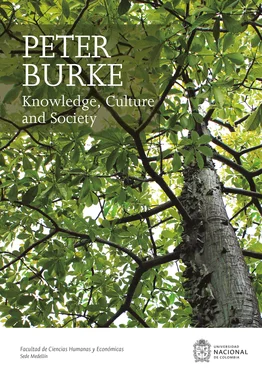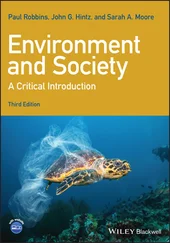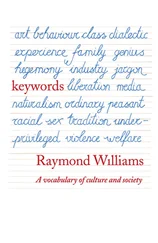And here we arrive at the problem that brings us together in this text: the production of knowledge, which is an intrinsic part of the culture circuit and an essential part of what defines us as a species. I understand by knowledge the whole compound of observations, descriptions, representations, practices, rationalizations, procedures, conducts, discourses, institutionalizations, and know-how, by which we humans classify the lived experience and build our world: what we call “reality”.
As Ernst Cassirer showed in his 1932 book The Philosophy of Enlightenment, 7starting with the works of biologist and pioneer in ethology Johann von Uexküll, all animal species are adapted to and coordinated with their environment. They possess a “receptive” system that responds to external stimuli, and an “effector” system that reacts to the stimulus, meaning that there’s a direct relationship between the animal and the sensory world. However, there is certain reversal of this natural order among humans, a new quality constituted in the distinctive feature of a human being’s life: its symbolic ability. That’s why the functional circle of humans is quantitatively wider (from the biological point of view, the use of the hand and the acquisition of manual skills have been linked to the development of the brain 8), in such a way that Cassirer defines humans as symbolic animals.
Already in 1978 and from Cognitive Anthropology, Dan Sperber, in his book Le Symbolisme en général, had shown how humans are only equipped “with a general symbolic dispositive and learning abilities”, settling once and for all the dispute held throughout the process that, beginning in the Enlightenment, classified and ranked world populations and their cultures as superior or inferior according to their degree of “civilization” or “progress”; a dispute later deepened by evolutionist theories, especially in Anthropology and History. It was a long process, leading to the defeat of fake postures and prejudices rooted in scientific circles, in which previous academic research was fundamental: the one done by men as important as Gustav Klemm (illustrious unknown man), Franz Boas and Edward Evans-Pritchard, in the first discipline, or by Karl Lamprecht and Johan Huizinga, 9in the second.
This strategy consists [… says Sperber] of looking for the most systematic and coherent treatment of the diverse information they are confronted with. In this hypothesis, diversity of beliefs, rites, etc., and their repetition, far from being absurd or contingent, appears as necessary, because it is the only thing that enables, given the absence of explicit instructions or innate schemes, the understanding of how the experience of cultural symbolism can lead, at least partially, to a common orientation of the members of a certain society. If such common orientation didn’t exist, the existence of cultural symbolism itself would remain incomprehensible. 10
Within its production circuit (creation, exchange, 11transformation 12), each culture constitutes different symbolic systems or cognitive apparatus, 13meaning that each culture has different rationalities and ways of thinking, diverse ways of operating in the world and different forms of classification, leading in turn to different ways of processing events in its surroundings by means of diverse mechanisms, which end up constituting knowledge of all kinds, that is, knowledge about the world, such as cooking, extracting the poison from mandioca before its consumption, weaving and dying textiles, writing a penal code, producing scientific knowledge or medical/magical wisdom as complex as shamanism. 14
It is through this knowledge and the set of practices and representations that constitute culture, that the world and people around us are classified, distinguished, interpreted and characterized; by these means, we recognize others and are, in turn, recognized. Such knowledge is constituted by direct observation of experience, prejudices, 15discourses, 16practices and representations of culture, knowledge passed through generations and supported by common sense –what Bourdieu called practical sense. Constitution of knowledge is always implied in the culture circuit, from complex or sophisticated knowledge to practices that may seem simple or unnecessary, like the use of the fork. 17
When we speak of symbolism, we speak of an autonomous cognitive dispositive that participates in the constitution of knowledge (of all kinds) and in memory functioning. It is this human learning ability that determines cultural variability. Sperber classifies cultural knowledge in three types:
1. Explicit knowledge: the one explicitly imparted.
2. Tacit knowledge:
a. It can never be acquired by a simple register;
b. It must be reconstructed by each individual;
c. It is direct proof of specific learning abilities, of a qualitatively determined creative competence.
3. Implicit and unconscious knowledge: when those who hold tacit knowledge are able to make it explicit.
On this path, semantic knowledge refers to categories and can be expressed through a set of analytical propositions, while encyclopaedic knowledge is concerned with the world and expressed through a set of synthetic propositions (beliefs belong to this type), and that’s why causal knowledge is always a posteriori and why the concept of truth varies not only from one culture to another but also within the same culture. 18
In order to study tacit knowledge, intuition is fundamental. We’re talking about judgements that members of a cultural group explain systematically without developing the argument upon which they rely. For instance, when a society considers something insulting but cannot entirely define the criteria upon which such judgement relies (and here we could resort to the examples presented by Clifford Geertz about winking in his text “Thick Description” 19). Explicit cultural knowledge, such as proverbs, is the object of tacit underlying knowledge: proverbs are part of a general implicit gloss and, at the same time, part of some unconscious knowledge that determines the precise conditions for their appropriate use and the symbolic nuances that should be added to their interpretation. 20
Symbolism is therefore exemplary, since its implicit forms are unintelligible by themselves and their study has always assumed the existence of underlying tacit knowledge. Common sense could then be understood, according to Pierre Bourdieu, as a type of collective knowledge with a practical character: in the midst of the dispute to classify reality – with the pretension to gain a monopoly over order and nomination - categories are established through the construction of representations; categories that are validated when they become widely accepted by means of a naturalization process of the dominant order and its relationships. 21
A “cultural system”, as defined by Clifford Geertz, 22predisposes toward certain interpretations of reality and determined cultural behaviours, and establishes shared significances. Common sense is constituted through learning processes in childhood, through observation, experiences of the world, situations lived collectively in society, normative social precepts and through institutions and instituted performative practices of behaviour, practices, discourses, representations…, that is, performances of reality. Common sense also participates, as a good number of studies have already shown, in the construction of western knowledge, of the so called scientific knowledge. 23
In The Imperfect Garden, 24Todorov splits the ways of thinking that arrived with what he calls the modern man from Enlightenment into four families: conservatives, scientificists, individualists and humanists. We are interested here in the scientificist family, adhered to a deterministic vision of the world, that increased during the 19th century, when three forms of causality and determinism consolidated: social and historical; biological, and psychic and individual; 25forms of thought that, although still part of our interpretative background, could be traced back to Greek philosophy and Christian religion. For them, willpower is void “because nature (or history) has decided everything for us”. “Omnipresent, causality is also the same everywhere: scientificism is a universalism” that recognizes the differences arising from the contingences of facts, since “… the inexorable concatenation of causes and effects can be known in an exhaustive manner, and modern science constitutes the real path of such knowledge… it opposes the passive acceptance of the world as it is”. 26
Читать дальше












